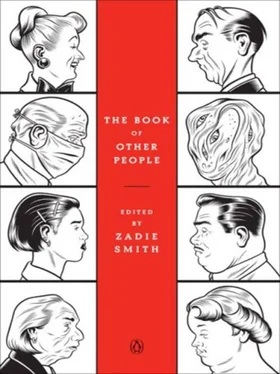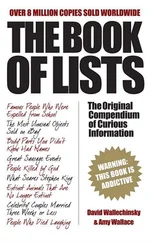Or so she’d assumed. During the ham incident, when Sylvia had unfairly accused Glad of not knowing her (didn’t Sylvia know that Glad’s way of knowing was what looked like not knowing?), she had then gone on to say something that was, perhaps, true. She had claimed that Glad refused to be known . I don’t know anything about you, Sylvia said, and I’ve known you for twenty years. I don’t know why you are the way you are.
A person needs a reason to be herself? thought Glad. But instead she said – fair enough . This is her measured, judicially minded parry to every little trauma Sylvia kicks her way. Fair enough.
Glad looks at the falling snowflakes, thicker now, ghosting the branches of the oaks. The green velvet prickles the backs of her arms. She squirms uncomfortably, then settles down to concentrate, closing her eyes and straining her face muscles. Pushing her brain backward is like trying to nag a boulder uphill with a feather. She begins with something easy. Where was she when she heard the explosion? She was hiding from her mother behind one of the oaks lining the drive, fingering the bark as she is now fingering her book. The scientist’s house next door, unseen behind a wall of arbor vitae, emitted a cloud of white smoke. The slate tiles from the garage roof scattered through the air like shot from a rifle, growing larger and larger as they spun towards her. A late-blooming sense of self-preservation drove her behind a tree trunk, into the front of which, a second later, two tiles thunked themselves with the sickening sound of axe-heads. Her mother emerged from the house. She noted her sunflowers, decapitated by a low-flying tile. She spied a speck of Glad’s dress, protruding from behind the impaled oak.
Get in here and finish your chowder, she said angrily. Or did she? Glad honestly couldn’t remember. She was only sure that her mother treated her as if she were to blame for the accident, as if Glad’s availability to be freakishly killed had caused the neighbor’s house to explode.
(She can imagine Sylvia asking at this point: why really did the house explode? And was anybody killed? But this is not the secret. Or rather these questions, the inevitability of Sylvia’s literal-minded questions, discourage her from sharing this secret past of hers. Not to blame Sylvia and her pointless redirects. But to moderately blame Sylvia. Yes, indeed. If Sylvia’s searching for the why, the why Glad is the way she is, why Sylvia has never been permitted to know her in a way that feels satisfactory to her, Sylvia must in part take responsibility.)
But returning to the flashback. Her own mother, Glad remembers, steered her into the house. Glad felt invigorated by proximity to annihilation, her head lighter for having nearly been detached, airborne – and then her mother’s total inability to accurately read Glad’s emotional state made her remember (she actually remembered remembering) an incident with her piano teacher who had quit the previous year.
( Your piano teacher , Sylvia would say skeptically, implying that, after a near-death experience and an explosion, some actual lesson might be extracted.) But soon she was remembering inside of a reminiscence (this was another reason why she’d never revealed her secret life to anyone, such an aimless tributary it was), feeling quite viscerally beneath the hands of her mother the touch of her old piano teacher, Mr Phillips. Something about Mr Phillips’s sleazy availability, especially as he hovered over the keyboard with his chin practically brushing her sort-of breasts as she clunked her way through ‘Greensleeves’, appealed to her. Or not his availability – his stupidity. He was so certain that she was a hapless, naive girl of what – twelve? eleven? – that he could nearly brush her breasts and she wouldn’t notice. That he could caress her elbow as she mutilated ‘Good King Wenceslas’ and she would read his attentions as teacherly.
It was a sweetly vile arrangement, everyone more or less content to behave dishonestly, until Mr Phillips came late one day, so late that Glad convinced herself that he was not coming. And thus she allowed Harold Blunt to kiss her by her back door, the door Mr Phillips used because he was a back-door sort of man. She often kissed Harold Blunt because Harold Blunt was such a far-flung outcast that no one would ever believe him if he claimed to be kissing Glad Parks practically daily. On this day that she was kissing Harold Blunt, Harold Blunt had been chasing her with a water balloon. He cornered her by her back door and, balloon held threateningly over her head, clamped his lips over hers. When Mr Phillips found her kissing Harold Blunt, he stared at her as an adulterer might stare at his cuckolding mistress. She averted her eyes, but even so it was as if every belittling, superior thought she’d ever had about the man was broadcast over the neighborhood loudspeaker. He knew he’d been had. Harold Blunt responded by smashing the water balloon on Glad’s head and running away. Glad stared at Mr Phillips through her raining-down bangs. He hardened to her in a matter of mere seconds; she was no innocent, she was just another ‘Greensleeves’-mangling trollop who’d made a fool of him.
As the balloon water dripped into her eyes, she was reminded (a reminiscence inside a reminiscence inside a reminiscence) of another moment in her life, although in fact this moment was in her then-future, so how could she have ‘remembered’ forward from the past? Confusing, and yet this was how it happened, or rather this was how this past of hers existed . As an ever-shifting matrix of falsely interconnected selves. Somehow as a twelve- or eleven-year-old she remembered being sixteen, she remembered riding in the back of a rental car driven by her parents, rain sheeting down the windshield, too much for the the hairpin wipers. Their Bermuda vacation had ‘turned’, as her father phrased it – a hurricane loomed, the three of them had colds, her mother, an incessant liar who lied about things that shouldn’t be lied about, was ‘in her element’, i.e. raucously miserable. When miserable she told stories that Glad herself knew to be untrue because they had happened, or rather hadn’t happened, to her. At this moment she was telling Glad about the time she and Glad had taken the ferry to the Vineyard and Glad had tried to jump overboard. ‘You loved to self-destruct in a crowd,’ her mother said, forgetting that Glad had climbed atop the railing in an attempt to rescue an old lady’s escaped parakeet, clinging to a porthole bolt. She’d lost her footing and slipped safely back to the deck, but not before knocking the parakeet from its perch and sending it hurtling to its death in the wake below. When the old lady approached them worriedly for a report, her mother patted the old lady’s forearm and said, ‘He flew away, dear.’
From that moment on the boat (which was, technically, an anecdote inside a reminiscence inside a reminiscence inside a reminiscence), she recalled a time when, at nine, her mother calmly watched her fall out of an apple tree; at ten, when she ran over a baby vole with her bicycle, and her mother, who was poisoning voles by the thousands in her vegetable garden, called her a murderer; at twelve, when she meticulously sliced her own thumb open with a penknife and bled over her mother’s silk party dress, hanging on the bedroom hook. The pattern was unrepeatable, and thus more dangerously ineffable than a single memory. The sensation felt like spinning too fast on a merry-go-round. Each fraction of a second her eyes focused on a new face in a crowd. Within seconds the face was gone, whisked to a blur, replaced by another face that would just as soon be lost.
Glad clutches her book, feeling rather sick. She finds herself recalling incidents that are technically impossible to recall, looking up from her changing table as a weeks-old infant, a miserable ball of heat and squirm observing the haggard look on her mother’s face, then gradually moving forward again, each memory chain-linked only by this: all involved her mother. This is why she doesn’t put much stock in so-called secrets, or the meaningfulness of untold recollections that become, in their airtight echo chambers, the supposed stuff of secrets. They are only a way to become retrospectively enraged at somebody else so that your own adult weaknesses can be tidily excused.
Читать дальше












